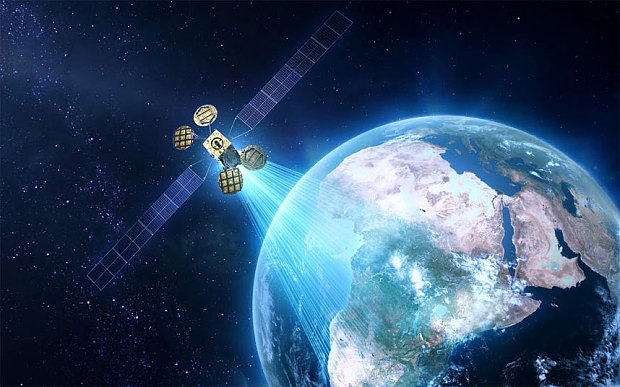Facebook Partners with Eutelsat to Get More Africans Online
Facebook partnered with Eutelsat, a satellite company to build up the connections for providing free internet services across the globe.
The move is part of Facebook’s Internet.org initiative, which aims to bring Internet to places that don’t have it yet.
Eutelsat (Paris: FR0010221234 – news) said in a statement the project would offer access “using affordable, off-the-shelf” hardware, sharing capacity with Facebook in regions often lacking access to reliable fixed and mobile terrestrial networks.
Scheduled for start of service in the second half of 2016, the Ka-band payload on the AMOS-6 geostationary satellite is configured with high-gain spot beams covering large parts of West, East, and Southern Africa. Tesla CEO Elon Musk also unveiled his plans to launch a “constellation” of satellites to provide connect people to internet all over the world.
“Satellite networks are well suited to economically connecting people in low- to medium-density population areas”, Eutelsat added.
“For Facebook, this satellite system represents one of many technology investments to enable cost-effective broadband access to unconnected populations”.
For this latest project, Eutelsat is setting up a new company that will be based in London, and will oversee the African satellite broadband rollout.
Two years ago, Facebook announced Internet.org, an effort to accelerate the rate of connectivity by addressing the physical, economic and social barriers that are keeping people from getting online. Facebook says it will work with “local partners” across Africa to help deliver services, using both satellite and terrestrial capacity.
Facebook is also testing a solar-powered drone with a wingspan as big as a Boeing 737 that will use lasers to send Internet signals to stations on the ground.
But the initiative has come under increased criticism, with many accusing it of favoring Facebook over its competitors and impinging on the principle of “net neutrality”.
“Eutelsat?s strong track record in operating High Throughput Satellite systems will ensure that we can deliver accessible and robust Internet solutions that get more users online and part of the Information Society.?”








